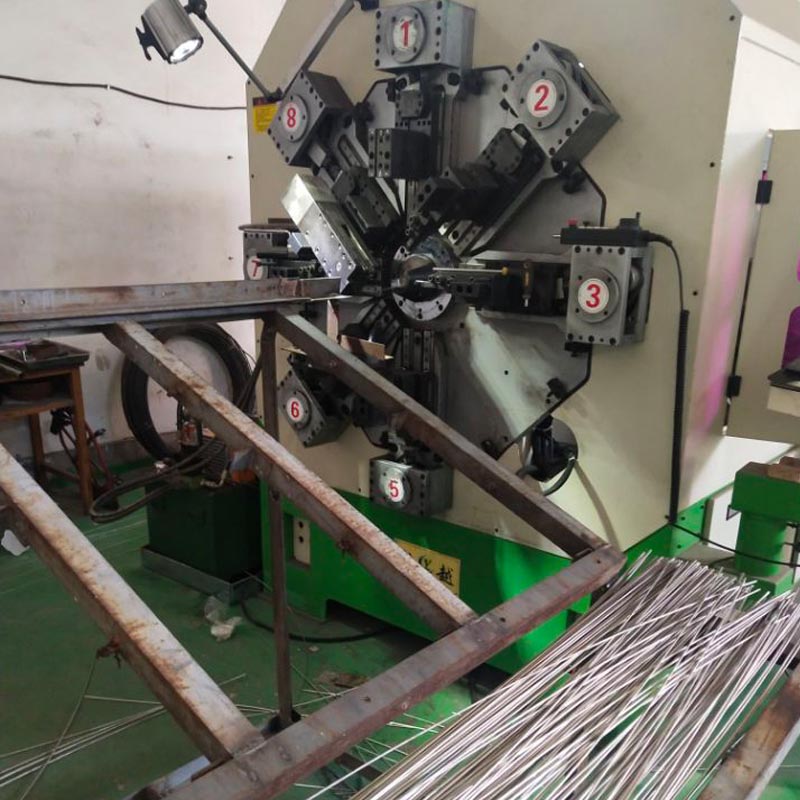
- Mobile Phone
- +8613931874955
- sales@cntcmetal.com
Different Types of Field Fencing for Agricultural and Wildlife Protection
Understanding Field Fence Types A Comprehensive Guide
Field fencing plays a crucial role in defining boundaries and protecting livestock. With various types of field fences available, each serving distinct purposes, it’s essential to understand the differences and functionalities of these fences to make informed choices according to specific needs.
1. Barbed Wire Fencing
Barbed wire fencing is one of the most common types utilized in agriculture. It consists of strands of wire twisted together with barbs at intervals, designed to deter intruders and livestock from escaping. This type of fence is economical and easy to install, making it a popular choice for large pastures. However, while efficient for keeping cattle within boundaries, barbed wire can pose injury risks to animals if not properly maintained. Thus, it’s important for farmers to inspect the fence regularly for loose wires or sharp edges.
2. Electric Fencing
Electric fencing is another prevalent option that uses a low-voltage electric current to deter animals. This type of fence can be particularly effective for keeping livestock contained and preventing them from straying onto roadways or neighboring farms. The shock delivered by the fence is not harmful but serves as a painful reminder for animals to stay away. Electric fences are versatile, often being used in conjunction with other fencing types, and can be temporarily set up for rotational grazing purposes. Moreover, they require diligent maintenance and a reliable power source to function effectively.
3. Wood Fencing
Wood fencing is not only decorative but also effective for containing livestock. Whether it’s split rail, board, or post-and-rail, wood fences can be aesthetically pleasing and sturdy. While wood fences offer a strong obstruction against larger animals, they may require more maintenance than wire or electric fencing, as wood can rot or become damaged over time. Regular treatment with preservatives and occasional repairs can help prolong the life of wooden fences.
field fence types

4. Wire Fencing
Wire fencing, which includes woven wire and field wire, consists of vertical and horizontal wires woven together to create a grid-like structure. This design makes it suitable for containing smaller animals such as sheep or goats. Wire fences are durable and can withstand harsh weather conditions, but they can be more costly than barbed wire or electric fencing. However, they provide a secure environment for animals, preventing them from getting caught or escaping.
5. Stock Fencing
Stock fencing is specifically designed to keep livestock contained while allowing wildlife and smaller animals to pass through. This type of fencing usually involves high-tensile steel wires and is particularly effective for sheep and cattle. It’s often erected in rural areas due to its efficiency in managing larger animals across expansive lands. Stock fencing is generally low-maintenance and can be easily repaired if damaged.
6. Chain Link Fencing
While not typically used for fields, chain link fencing can also serve agricultural purposes, particularly for securing storage areas or gardens. Its open design provides visibility while maintaining a sturdy barrier against potential intruders or wildlife. It’s important to note that chain link fences may not deter larger livestock, so they are usually used in conjunction with other fencing types.
Conclusion
Choosing the right type of field fencing depends on a variety of factors, including the type of livestock, terrain, budget, and aesthetic preferences. Each fencing type has its unique benefits and drawbacks. By understanding these options, landowners can make informed decisions that best suit their needs, ultimately contributing to the safety and management of their agricultural operations. Regular maintenance and inspection of any fencing type ensure longevity and effectiveness, providing peace of mind for those working with livestock.
share:
-
Why Sacrificial Formwork Is Redefining Underground ConstructionNewsJun.06,2025
-
The Structural Dynamics of Modern Concrete: How Snake Spacers Revolutionize Flexible ReinforcementNewsJun.06,2025
-
Snake Spacers Smart-Lock Concrete Reinforcement with Surgical PrecisionNewsJun.06,2025
-
Snake Spacers: Reinforcement Precision for Modern Concrete ProjectsNewsJun.06,2025
-
Snake Spacers Powering Concrete's Structural DNANewsJun.06,2025
-
Slither into Success: Snake Spacers' Precision Bite for Unbreakable ReinforcementNewsJun.06,2025
-
Sacrificial Formwork: Building Stronger, Faster, and Safer StructuresNewsJun.06,2025



















